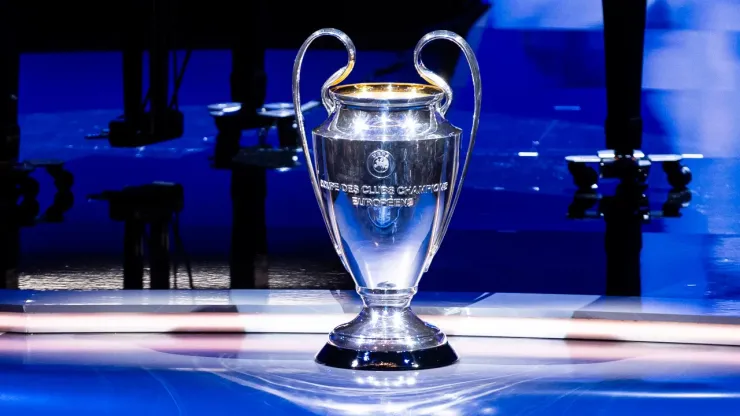
This week, we not only say hello to the UEFA Champions League group stage. We also say goodbye. After this season, the UEFA Champions League group stage is undergoing a major overhaul. The new ‘Swiss model‘ format replaces the traditional group stage. Therefore, the 2023/24 UEFA Champions League is the end of an era in Europe’s premier club competition.
Since the 2003-04 campaign, the Champions League consisted of a group stage involving 32 teams drawn into eight groups of four teams. The top two teams from each group advance to the knockout stages. This format succeeded the second group stage phase that was in place from 1999 to 2003. The round-robin group stage has provided many iconic moments over the years. Clubs from England, Spain, Italy and Germany dominated this phase. The biggest criticism of the current format has been the lack of jeopardy in later group stage matches as the top teams often qualify early.
UEFA Champions League embracing new format after this season
From 2024-25 onward, the UEFA Champions League will have 36 teams in one single league. Organizers draw clubs into four seeding pots. Then, they play two teams from each pot in a single league table.
Therefore, each club plays eight matches, four home and four away. It is worth noting that these matchups are not the same teams. Instead, the Swiss model ensures each team plays eight group-stage games against eight different opponents.
All 36 teams will battle in one unified league table. Only the top 8 teams advance directly to the last 16. Clubs finishing between ninth and 24th position compete in a two-legged playoff to determine the remaining 8 spots in the last 16. No teams will drop into the Europa League at this stage.
The knockout stage will retain its current two-legged format. However, there are proposals to eventually replace the semi-finals with a ‘Final Four’ tournament in one host city. Again, those are just rumblings. For at least the 2024/25 campaign, the round of 16 through the semifinals are two-legged ties. Then, the Final is a one-off affair.
Our Pick:Includes: Champions League, Europa League, Serie A, NWSL, Argentine Primera, Brasileirão, Scottish Premiership, Women's Super League, & More |
 |
Allocation of spots in the Swiss model
UEFA is distributing the four extra spots as follows:
- One place to an additional domestic league champion through the ‘Champions Path’
- One place to the league ranked 5th in UEFA coefficients (currently Eredivisie)
- Two places to leagues with the best collective performance in Europe the previous season (likely Premier League + another top league)
This means the Premier League could have 5 clubs in the competition regularly from 2024. Qualification remains merit-based, with no historical or legacy spots for big clubs.
Criticism and Concerns
The expanded Champions League format has its share of critics across Europe. For example, there are far more matches. In addition to each team playing two additional ‘first-round’ games, the clubs finishing ninth to 24th play two more games on top of that. Therefore, one club may play eight ‘league’ matches. Then, it will play two more just to get to the round of 16. In other words, a team goes from playing six group-stage games in the 2023/24 UEFA Champions League to playing 10 before the round of 16.
Additionally, top teams should qualify fairly easily, at least for the playoff round. The more games played reduce the likelihood of costly slip-ups in the league phase. Therefore, the 2024/25 UEFA Champions League may have reduced parity in the initial phase. Consequently, it sets up better matches in the playoff and knockout rounds.
Finally, UEFA may make a slippery slope out of adding more teams. If the 2023/24 UEFA Champions League allotted more teams, the clubs added would have included Liverpool, Atalanta and Marseille. Each of those has made regular appearances in the UEFA Champions League in recent seasons.
A major shift that will have to prove itself
Nonetheless, UEFA maintains the Swiss system will create more high-profile matches between top teams and generate 30% more revenue from broadcasting and sponsorship deals. While not as radical as a European Super League, the new Champions League model marks a major shift from the classic group stage format fans have relished since the 1990s. This season will be the last chance to enjoy that familiar setup before the Swiss revolution arrives next year.
PHOTO: IMAGO / justpictures.ch
200+ Channels With Sports & News
- Starting price: $33/mo. for fubo Latino Package
- Watch Premier League, Liga MX & Copa Libertadores
The New Home of MLS
- Price: $14.99/mo. for MLS Season Pass
- Watch every MLS game including playoffs & Leagues Cup
Many Sports & ESPN Originals
- Price: $10.99/mo. (or get ESPN+, Hulu & Disney+ for $14.99/mo.)
- Features Bundesliga, LaLiga, NWSL, & USL
2,000+ soccer games per year
- Price: $7.99/mo
- Features Champions League, Serie A, Europa League & EFL
175 Premier League Games & PL TV
- Starting price: $7.99/mo. for Peacock Premium
- Watch 175 exclusive EPL games per season





